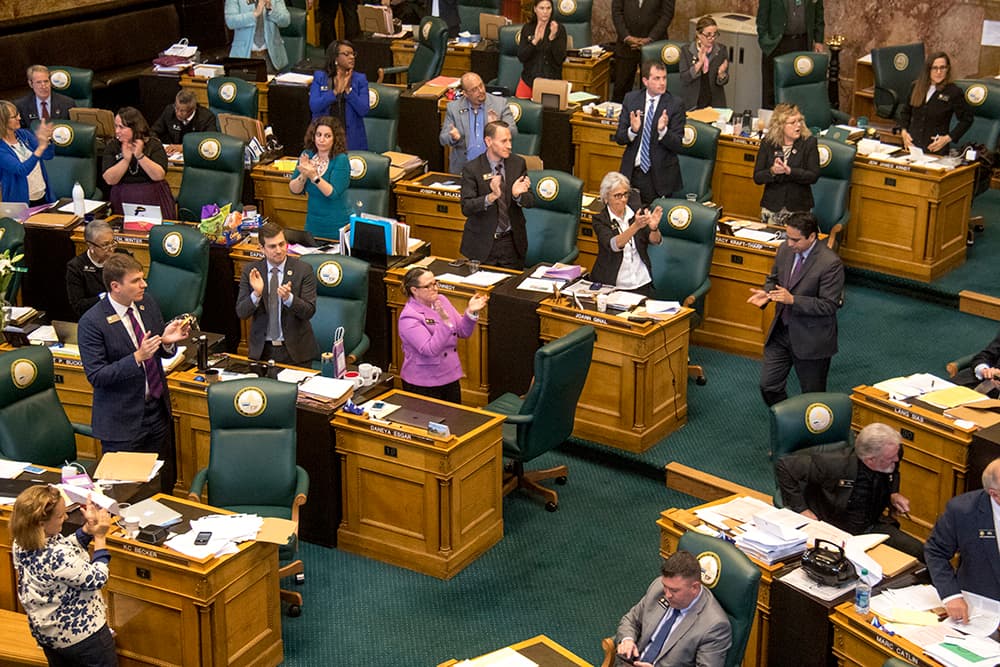
The Regional Transportation District, the Scientific and Cultural Facilities District and districts that fund housing and public health in rural counties are all missing money this year because legislative fiddling with the marijuana tax rate failed to take them into account.
This goes back to Senate Bill 267, probably the most significant piece of legislation to come out of the 2017 Colorado General Assembly. It turned the hospital provider fee into an enterprise fund, protecting funding for hospitals going forward, and set aside money for rural schools and roads, among many other provisions. This bill was still being written in the final days of the session, and it contained so many bits and pieces that one legislator called it a "casserole."
It turns out one ingredient was missing when the casserole went in the oven: marijuana revenue for Colorado's special taxing districts.
One of the bill's provisions raised the state retail tax on marijuana from 10 percent to 15 percent, the full amount authorized by voters, and eliminated the 2.9 percent regular state sales tax on marijuana. That way, we didn't end up with an actual marijuana tax rate of 17.9 percent. It was here that the special districts' funding was accidentally eliminated, along with the 2.9 percent sales tax.
RTD collects a 1 percent sales tax to fund transit in the six-county Denver metro area, and the Science and Cultural Facilities District collects a 0.1 percent sales tax to fund institutions like the Denver Art Museum, the Denver Zoo, the Denver Botanic Gardens, the Denver Center for the Performing Arts and the Denver Museum of Nature and Science, along with a host of smaller cultural organizations.
For RTD, the lost revenue amounts to about $500,000 a month.
"Given our overall budget, it's not a lot, but every amount counts," said Nate Currey, a spokesman for RTD. That overall annual operating budget is $626 million.
"The public will not see any service impacts because of it, but it's a few million dollars we're not going to have," Currey said. "We are able to absorb that."
The lost money came as a surprise to RTD, which was notified in July by the state when the legislation went into effect. It wasn't part of the debate on the bill at all, and it appears to have been a complete oversight.
The SCFD isn't saying too much about the impact, and the member institutions referred questions back to the SCFD. SCFD draws from a similar but not identical six-county area as the RTD, but their tax rate is a tenth of the RTD's. Presumably the financial impact is proportionally smaller, but that money has to be shared among dozens of institutions.
"The SCFD is aware of the issue and is currently working through financial modeling which will allow us to better understand the true financial impacts for the district," Executive Director Deborah Jordy said in an email.
"We have alerted our funded organizations and are keeping them updated as we have new information. Meanwhile, we are working closely with the governor’s office and legislative leadership to explore solutions."
The Colorado Department of Revenue doesn't have a good tally of the overall financial impact. Other affected entities include Regional Transportation Authorities in mountain communities, on the eastern plains and in El Paso County; a housing authority in Summit County; and a health services district in Montezuma County, according to the Department of Revenue.
Currey said the RTD expects the problem to be fixed early in the next legislative session.
"The fix is in the works," he said. "It's a good lesson to the legislators that words matter. Even just a couple words in a bill can have a big impact."













